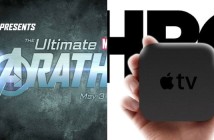Yesterday, after nearly a month of leaked emails, scripts, and films, Sony chose to cut off its infected limb, and completely abandoned The Interview. Over the course of a day, the top theater chains dropped the film (after getting the OK from their overlord the National Association of Theatre Owners), press screenings were cancelled, TV advertising pulled, and finally, The Interview was canned completely. For more information on the full Sony Hack, Deadline has a comprehensive timeline.
It seems simplistic to call this situation difficult. This group of digital terrorists (because they stopped being merely hackers a long time ago) had put sizeable threats on the table, including evoking memories of September 11th, and Sony had little to gain by showcasing the film. If they chose to go forward with the few independent theaters brave enough to show the film, they would have the potential to make a very limited amount of money while showing that they refuse to yield to threats; but if even one life was lost at one of those screenings, the backlash, blame, and guilt on their hands would be sizeable. From a purely business perspective, Sony made the only choice they had. Unfortunately, and perhaps as an illustration of just how much business and art refuse to mix pleasantly, they have dealt a critical hit to film as an art form.
Sony has shown that art can be stopped by those that dislike it. Be a scary enough jerk and you will get your way.
Art is a conduit for self-expression in any form; be it a poem, a painting, or a film. To limit this expression is to limit the artist, and effectively render the true purpose of its very being meaningless. Sure, The Interview was a comedy, and based on Seth Rogen and Evan Goldberg’s track record, most likely a bit sophomoric and proud of its R-rating. Nevertheless, it still aims to elicit an emotional response from its audience and put forth something entertaining. The Interview’s artistic sensibilities, or lack thereof, are not the point, but rather that it serves as a representative of its medium. Sony has shown that art can be stopped by those that dislike it. Be a scary enough jerk and you will get your way.
 This isn’t the first time that the entertainment industry has used North Korea and its dictator as a subject of parody. 30 Rock had a whole storyline that involved the country (complete with Margaret Cho as Kim Jong-il), Team America: World Police went so far as to say that Kim Jong-il was just a cockroach in disguise, satirical documentary The Red Chapel (as pointed out by Indiewire) went directly into the country to drop its ridicule, and the Red Dawn remake specifically altered its villains in post to be North Korean. These are just the most notable inclusions in a field that has often looked to international oddities and leaders as fodder for entertainment. When Rocky Balboa went to the USSR and single handedly converted a stadium of spectators to American champions in Rocky IV, you didn’t see Soviet Russia angrily threatening Philadelphia. Perhaps it was The Interview’s choice to have the assassination of Kim Jong-un as its major propelling factor that riled them up so much, but even so, this seems like a ridiculous measure to just now begin to implement.
This isn’t the first time that the entertainment industry has used North Korea and its dictator as a subject of parody. 30 Rock had a whole storyline that involved the country (complete with Margaret Cho as Kim Jong-il), Team America: World Police went so far as to say that Kim Jong-il was just a cockroach in disguise, satirical documentary The Red Chapel (as pointed out by Indiewire) went directly into the country to drop its ridicule, and the Red Dawn remake specifically altered its villains in post to be North Korean. These are just the most notable inclusions in a field that has often looked to international oddities and leaders as fodder for entertainment. When Rocky Balboa went to the USSR and single handedly converted a stadium of spectators to American champions in Rocky IV, you didn’t see Soviet Russia angrily threatening Philadelphia. Perhaps it was The Interview’s choice to have the assassination of Kim Jong-un as its major propelling factor that riled them up so much, but even so, this seems like a ridiculous measure to just now begin to implement.
Regardless of the reasoning behind these actions, the results could set a terrible precedent for the future of film and television releases. These terrorists have shown that with enough aggression, a radical group can get its way. Sony had almost no choice but to abandon a theatrical bow for The Interview, but in completely abandoning the film it has handed power over to the bad guys. A VOD or DVD release would show the company putting the safety of the consumer in mind but not allowing a bully to shut them down. Even at this point, having taking the production costs as a loss, the company could just offer up the film for free to audiences. To offer it up to a set of viewers that grows by the day (because no one likes to be told what to do), they would at least not be so horribly admitting defeat.
The floodgates have now been opened and all other studios should be waiting with bated breath for what this could mean for the medium.
The floodgates have now been opened and all other studios should be waiting with bated breath for what this could mean for the medium. Sony is not some miniscule company, but a mammoth with a long career in the field. If they cannot stand strong against hateful opposition, it will be that much harder for the little guy. When it comes to bullies, Sony has taken the stance to give them what they want or avoid them entirely. It should be no surprise that future projects (as New Regency has already done with its Steve Carell vehicle) will do their best to avoid these troubles. The future of film may feature a whole lot of movement like the scared actions of Brennan Huff and Dale Doback:
Film will be crippled if everyone just takes the long way home.



